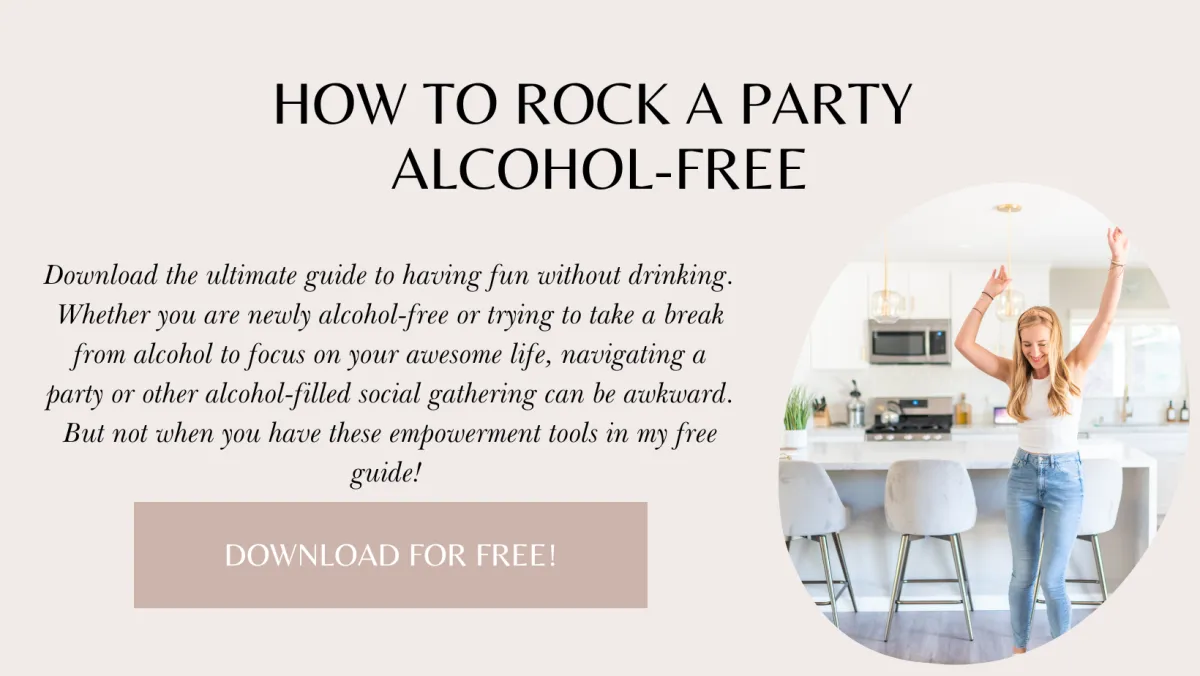Stop Drinking and Lose Weight

One of the greatest benefits of quitting drinking or taking a prolonged break? Well that’s hard to say because, honestly, there are so many of them (pervasive joy, well-being, deep sleep, and feeling awe for the world again). But for some of us who have been trying to lose weight for years and suffer through depriving diets and challenging workout plans, look no further. Stop drinking and you will lose weight.

I spent the entire decade of my 20s trying to lose weight, always struggling with those last 5-10 pounds. I honestly gained the weight in the first place due to “adulting” or drinking every weekend and going out to parties in college. But one day in my early-twenties, I woke up to effects and realized I slowly (or quickly?) ballooned way past my natural weight. And so the dieting plans ensued.
I did juice cleanses. I ate quinoa. I did low-carb, intermittent fasting, and high intensity workouts. I joined a gym. I joined a yoga studio. There was the time I wanted to lose ten pounds for my wedding. Or the times I wanted to lose a few before other people’s weddings. The times before cruises (wanting to look good in a bikini) and the times before family vacations. Each attempt to lose weight was so hard, filled with so much deprivation and crazy routines—and the thing is, for so much work, they barely got me the results I wanted. The number on the scale is definitely not what defines our worth, but who hasn’t gone through the same struggle to lose weight or slim down? In reality, there was little of my time as a drinker when I wasn’t always looking to lose a few. And who could blame me?
Alcohol packs on the pounds. And honestly it’s far more sinister than just empty calories. Let’s explore why alcohol is correlated with weight gain and what you can expect once you stop drinking. Because maybe it wasn’t just me getting older all along but my complicated relationship with booze that was the culprit.
Calories
Diet rule number 1: don’t drink your calories. Which many people get the hang of and shun sodas and sweet fruit juices. Oh, but not with alcohol right? Alcohol pack on empty calories; it’s the second most energy-dense nutrient after fat. One glass of wine has between 150-200 calories. A beer clocks in between 100-200. Some heavy IPAs can be 300 calories. 300 calories! That’s a McDonald’s cheeseburger. Even if you’re a saint and only drink one drink a day, that’s an extra cheeseburger everyday. But let’s be honest. Most of us do not stop at one drink per occasion. Routinely add 500 calories to your day a few days a week and you can see why drinking won’t be doing you any favors.
Appetite
But, with alcohol, it’s not as simple as just calories in vs. calories out. It actually affects your metabolism in much more sinister ways. For one, there’s eating more. Alcohol stimulates your appetite—no wonder, we all have those nights of greasy late night snacks or munchies on pretzels. But in addition to increasing your appetite, alcohol also numbs the signal to your brain that you’re full. Meaning you just don’t register that feeling of fullness after grazing and snacking until it’s way too late.
Researchers from the Francis Crick Institute and University College London found that alcohol switches the brain into starvation mode, increasing hunger and appetite. They published a two-year investigation which looked at how ethanol affects the body, brain, and actions of mice. They found that alcohol not only increased appetite, but also decreased metabolism and energy levels and that a similar reaction happens in humans. I believe it.
Nutrients
There’s more. Alcohol blocks the absorption of certain nutrients and vitamins and they get depleted in the process of detoxifying alcohol. This is blind blowing. We don’t eat kale and broccoli because we absolutely love the taste—it’s all about those good-for-you nutrients our bodies need to be healthy. But what if our efforts are totally sabotaged? Not only does alcohol not have any vital nutrients itself, it also inhibits the absorption and usage of folic acid, zinc and vitamins A, C, D, E, K and B vitamins. By blocking the absorption of nutrients, alcohol yet again makes us feel hungrier not just when we drink it but all the time.
Metabolism
After eating and drinking all those calories, we need to burn them off. The body can’t store alcohol as an energy source and has to burn it right away. While this might sound like a good thing, it’s not. We can store nutrients, protein, carbs, and fat in our body, but not alcohol. Which means that our body needs to get rid of it immediately and this takes priority. A study by the Journal of Clinical Nutrition showed a 73% reduction in metabolism for three hours after consuming two drinks. All of the other macro-nutrients your body was suppose to burn are shut down and get stored as fat instead. Straight into your waistline.
Fitness levels
Seems like drinking alcohol makes losing weight one uphill battle, but what about simply working off all those extra calories and stored energy? Well, alcohol also considerably affects our ability to get physically fit.
You might recall from physical ed class how aerobic fitness works. We exercise our heart and muscles so that over time we become more efficient at pumping blood and delivering oxygen to our bodies. Many athletes in turn have much lower resting heart beats. Alcohol has the exact opposite effect. It forces our hearts to beat faster and increases our blood pressure, but with no related physical exertion. The heart becomes less efficient at pumping oxygen to the body and alcohol use over time increases both heart rate and blood pressure. Doesn’t sound good for training.
It also slows down muscle growth by diminishing protein synthesis, slows down the body’s ability to heal and recover from a workout, and depletes energy. Alcohol also causes a drop in testosterone levels (needed for growing muscles) and increases cortisol. So in addition to consuming more calories, eating more, blocking nutrients, and throwing off your metabolism, add decreased energy, aerobic fitness, and muscle mass to the list.
WHEN TO EXPECT SOME RESULTS
All these factors meant it wasn’t just getting old that was producing my muffin top. Alcohol plays a much bigger role in weight gain and being overweight than we ever thought. But isn’t this an article on how to stop drinking and LOSE WEIGHT? Well, that’s the easy part, because it’s bound to happen when you stop drinking. But be patient. It takes the body a few months to re-calibrate from these effects. Most people report pretty effortless weight loss results between 3-6 months of abstinence, but depending on your lifestyle and drinking habits, it could be quicker.
When you stop drinking, you put away hangovers, lethargy, lack of motivation, and remorse. All of this compounds and it’s almost inevitable that you will live a healthier lifestyle. Feel more motivated to workout. Crave healthier foods. Push yourself to go harder and faster.
Don’t believe me? Just google before and after photos quit drinking. You will be amazed. Not only do these people look healthier and fitter, they shine with a je ne sais quoi in their eyes.
Quitting alcohol or taking a prolonged break isn’t necessarily easy. But I have your back. Get my free guide on how to Take a Month off Drinking and FEEL AMAZING.
If you’d like some help to stop drinking and create the alcohol-life of your dreams, click here for details on my online course.
Make your desires for alcohol disappear when you read my book Euphoric: Ditch Alcohol and Gain a Happier, More Confident You. Click here to get your copy.
Sources:
https://www.nature.com/articles/ncomms14014
https://www.annualreviews.org/doi/pdf/10.1146/annurev.nutr.20.1.395
Image credit: https://totalshape.com/





